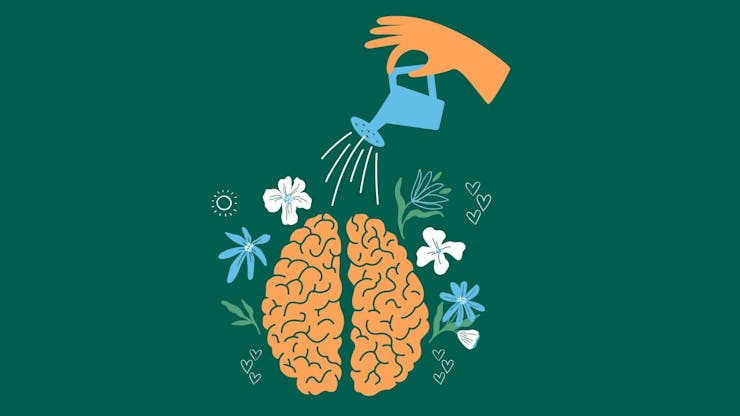A recent study found that when states adopt recreational cannabis laws, admissions for mental health treatment drop.
The study, published in the journal Health Economics, is notable given growing questions about cannabis’ impact on mental health. Over the past two decades, numerous states have legalized cannabis use for adults. Unfortunately, research on how cannabis impacts mental health is mixed.
Some studies have found cannabis helpful for some mental health conditions, while others suggest cannabis’ potential to worsen certain conditions. Because of this complex picture, some have worried that cannabis legalization could lead to worse mental health for the general population.
This study, however, suggests a more positive outcome arrives shortly after recreational cannabis laws—less admissions for mental health treatment.
Cannabis laws and mental health

Until recently, scant research existed on how cannabis laws impact mental health. But Alberto Ortega, a researcher from Indiana University, Bloomington, wanted to know more. “Recreational marijuana laws continue to grow in popularity, but the effects on mental health treatment are unclear,” Ortega explains. This motivated him to investigate whether the increasing number of states with legal cannabis saw significant impacts.
To do this, Ortega analyzed data on mental health admissions from state mental health facilities’ Uniform Reporting System. This included data on patients ages 13 to 65, over 12 years from 2007 to 2019. During this time, 10 states passed recreational cannabis laws. By comparing each state’s data, in the years before and after voters adopted the new laws, Ortega uncovered a clear pattern. Shortly after a state adopts cannabis legalization, they experience a significant drop in mental health treatment admissions.
The results look clear: Legal cannabis leads to fewer mental health admissions.
These results proved robust even when he controlled for differences between states with cannabis laws and those without. For example, states who passed recreational cannabis laws tend to have broader Medicaid access, as well as pre-existing medical cannabis laws. Since these factors could also impact mental health, Ortega controlled for them in his analysis. He also included controls for demographics like age, race, economics, and politics. But even with these controls, the main findings held.
This graph shows mental health treatment admissions in the years before and after recreational cannabis laws.
Results differ for some demographics
In the first few years after a state adopted a recreational cannabis law, states experienced a 37% drop in mental health admissions, on average. The results stayed fairly consistent across all ages under 65, with even the youngest group (13-20), seeing reductions in admissions. The correlation also proved relatively consistent between men and women, who experienced a 42% and 37% reduction in admissions, respectively.
Race drove the biggest differences in results. Black mental health admissions fell 27%, versus only a 9% decrease for whites. However other racial demographics showed less consistent results. Why did one race report fewer admissions than another? We need more research to understand this connection and what might drive it.
Medicaid enrollees also experienced bigger results. However this may result from reporting facilities having a high number of Medicaid users. Still, both groups saw decreases in admissions after cannabis legalization.
These graphs show mental health treatment admissions in the years before and after recreational cannabis laws, by race. (a) White (b) Black (c) Hispanic (d) Other Race.
Results show lower admissions, not better mental health
You might want to interpret this study as showing cannabis freedoms directly helping individuals’ mental health—and thus leading to fewer mental health admissions. But as Ortega explains, “the pathways contributing to the decrease in treatment admissions remain unclear. Thus, the results should not be conflated with improved mental health.”
Future research needs to address the causes of the link. Because a number of different theories could explain the data. Cannabis may directly help with mental health. But it’s also possible that self-medication with cannabis deters a person from seeking help, without actually improving their mental health. Unknown factors could also lead to these results.
One big limitation of this study: it doesn’t actually tell us who used cannabis, and how their mental health fared. It only looks at large-scale trends at the population level. This cannot replace medical research looking at mental health outcomes from cannabis use. Ortega reminds us that his findings, “speak specifically to treatment admissions and should not be conflated with improving or declining mental health.” Still, in terms of cannabis legalization’s immediate impact on the health system—the results look clear: Legal cannabis leads to fewer mental health admissions.





